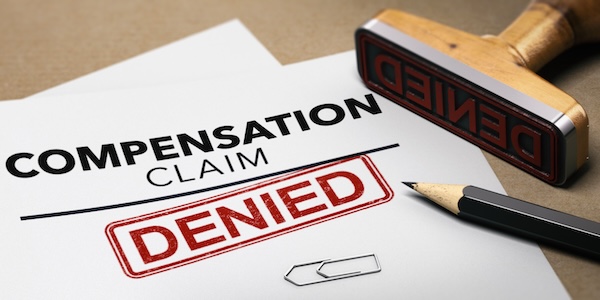Experienced Buford Workers’ Compensation Lawyers Here to Help You
If you’ve been injured on the job, navigating the workers’ compensation claims process can be overwhelming. Whether you’re facing a workplace injury, dealing with mounting medical bills, or struggling to recover lost wages, you need a knowledgeable Atlanta workers’ compensation lawyer on your side to help navigate claims and maximize benefits.
At the Law Offices of Humberto Izquierdo, Jr., PC, we proudly serve injured workers in Buford, Georgia, providing expert legal guidance and support throughout every step of your workers’ compensation case.
Our workers’ compensation attorneys are experienced in handling a wide range of workers’ compensation claims, from temporary partial disability to permanent partial disability and even fatal workplace accidents. With our team’s deep understanding of Georgia workers’ compensation law, we are committed to helping you secure the maximum compensation and workers’ compensation benefits you deserve. Atlanta workers’ compensation attorneys also play a crucial role in managing deadlines and appealing denied claims.
Whether you are facing challenges with your workers comp claim or dealing with a denial from your workers’ compensation insurance carrier, we’re here to fight for your rights and ensure you receive the medical treatment and financial support necessary to recover.
What is Workers’ Compensation?
Workers’ compensation is a system of insurance designed to provide financial support and medical care to employees who suffer a work-related injury or illness. The primary goal of workers’ compensation is to ensure that injured workers are taken care of, covering medical expenses, lost wages, and other costs associated with their recovery, without having to go through a lengthy legal battle.
In Georgia, workers’ compensation insurance is typically provided by employers to protect their employees in the event of a workplace accident or illness. Workers’ compensation benefits can cover a wide range of expenses, including medical treatment, physical therapy, and the cost of medications necessary for recovery. Understanding Georgia’s workers’ compensation laws is crucial to navigate the process effectively and secure the necessary benefits after a workplace injury.
Additionally, injured workers may be entitled to compensation for lost wages due to time off work, and in more serious cases, they may qualify for disability benefits or even death benefits if the injury is fatal.
A skilled workers’ compensation lawyer can help you understand your rights and ensure you receive the full range of benefits you’re entitled to under Georgia workers’ compensation law.
Why You Should Hire a Workers’ Compensation Lawyer
When you’ve been injured on the job, navigating the workers’ compensation claims process can be overwhelming, especially when dealing with complex legal terms and insurance companies. Hiring an experienced workers’ compensation lawyer can make all the difference in ensuring you receive the maximum compensation you’re entitled to.
Here are several key reasons why you should consider hiring a workers’ compensation attorney:
Expert Knowledge of Workers’ Compensation Law
Georgia workers’ compensation law can be intricate, and small mistakes in filing or handling your claim can result in delays or denials. Experienced Atlanta workers’ compensation lawyers are experts in navigating the complexities of the workers’ compensation system. A knowledgeable workers’ compensation lawyer understands the nuances of state laws and can help ensure your claim is filed correctly and on time, increasing the chances of a successful outcome.
Guidance Through the Legal Process
The workers’ compensation claims process can be long and complicated, often requiring you to interact with insurance companies, doctors, and the Board of Workers’ Compensation. A skilled workers’ compensation attorney will handle the legal complexities, ensuring you focus on healing rather than paperwork.
Maximizing Your Benefits
Insurance companies often try to minimize the amount they pay out for workers’ compensation claims. Having a workers’ compensation lawyer on your side ensures that you fight for the maximum workers’ compensation benefits, including coverage for medical treatment, disability benefits, and lost wages. If your claim is denied or undervalued, a workers’ compensation lawyer will help you appeal the decision and secure a fair settlement.
Protection from Employer Retaliation
In some cases, employers may retaliate against workers who file workers’ compensation claims, such as reducing work hours or terminating employment. A workers’ compensation lawyer can protect you from illegal retaliation and ensure that your rights as an injured worker are upheld.
Free Consultation and No Upfront Fees
Many workers’ compensation law firms offer a free consultation and work on a contingency fee basis, meaning you don’t pay unless you win your case. This makes it affordable for injured workers to seek legal assistance without worrying about upfront legal costs.
A dedicated law firm can provide personalized attention and extensive experience to secure maximum financial compensation for injured workers. Hiring a workers’ compensation lawyer can help you avoid costly mistakes, protect your rights, and ensure you receive the support you need to recover fully from your injury.
If you’ve been hurt at work, don’t navigate the legal process alone—let our legal team fight for your rights and secure the compensation you deserve.
Common Causes of Workers’ Compensation Injuries
Injuries that qualify for workers’ compensation benefits often result from various hazards or unsafe conditions in the workplace. Understanding the common causes of work-related injuries can help employees recognize potential risks and ensure they’re properly protected.
Some of the most frequent causes of workers’ compensation injuries include:
- Slips, Trips, and Falls: These are some of the most common causes of workplace injuries and can occur in nearly any industry. Wet floors, uneven surfaces, cluttered workspaces, and poor lighting contribute to slips, trips, and falls, leading to broken bones, sprains, and head injuries.
- Overexertion: Lifting heavy objects, pushing, pulling, or carrying weight beyond the body’s capacity can result in muscle strains, back injuries, and joint injuries. Overexertion is especially common in jobs that involve manual labor, such as construction, warehouse work, and delivery services.
- Repetitive Motion: Jobs that require employees to perform repetitive tasks, such as typing, assembling products, or operating machinery, can lead to repetitive stress injuries (RSIs). Conditions like carpal tunnel syndrome and tendonitis are common results of repetitive motions and can cause long-term damage to muscles, tendons, and joints.
- Vehicle Accidents: Employees who drive as part of their job, such as truck drivers or delivery personnel, are at risk for vehicle accidents that can result in serious injuries. These accidents may involve crashes, collisions, or accidents caused by adverse weather conditions.
- Machinery and Equipment Accidents: Workers who operate heavy machinery or equipment in manufacturing, construction, or agriculture may suffer crush injuries, amputations, or burns if equipment malfunctions or if safety protocols are not followed.
- Exposure to Hazardous Materials: In industries such as construction, manufacturing, and healthcare, workers may be exposed to dangerous chemicals, fumes, asbestos, or extreme temperatures, leading to respiratory illnesses, burns, or long-term health conditions like cancer.
- Workplace Violence: In certain industries, employees may be exposed to physical harm from coworkers, customers, or clients. Workplace violence can include physical altercations or verbal abuse, which can result in emotional stress, injury, or even death.
By identifying these common causes of workplace injuries, employers can take steps to implement safety protocols and reduce the risk of accidents. If you have been injured due to any of these causes, a workers’ compensation attorney can help ensure you receive the appropriate workers’ compensation benefits for your recovery and lost wages.
Steps to Take After a Workplace Injury
If you’ve been injured on the job, taking the right steps immediately following the incident is critical to ensure you receive the workers’ compensation benefits you’re entitled to. Below are the key actions to take after a workplace injury:
Report the Injury to Your Employer
The first step after any workplace injury is to immediately report the incident to your employer or supervisor. Under Georgia workers’ compensation law, you are required to report your injury within a specific time frame—typically within 30 days—so that your claim can be processed. Failing to report your injury promptly can result in a denial of your workers’ compensation claim.
Seek Medical Treatment
Once you’ve reported your injury, it’s important to seek medical treatment right away, even if the injury seems minor. Visit an approved medical provider for a full evaluation and ensure that all injuries are properly documented. Keep a record of your medical care, including any prescriptions, physical therapy sessions, and medical bills, as these will be crucial when filing your workers’ compensation claim.
Document the Incident
Keep a detailed record of the workplace accident. Write down how the injury occurred, the date, time, and location, as well as any individuals who may have witnessed the event. This documentation can help provide evidence for your workers’ compensation case and support your claim for benefits.
File a Workers’ Compensation Claim
After reporting the injury to your employer, you or your employer must file a workers’ compensation claim with the insurance company or the State Board of Workers’ Compensation. Your employer should provide you with the necessary paperwork to start the claim. It’s important to fill out the forms accurately and submit them within the required time frame to avoid delays in processing.
Follow Medical Advice and Attend Appointments
Continue with any medical treatment as recommended by your doctor, and follow all prescribed physical therapy or rehabilitation plans. Failing to follow your doctor’s advice can hurt your claim and potentially result in the loss of workers comp benefits. Keep detailed records of your medical visits and treatments, as they will be essential in demonstrating the extent of your injury and need for ongoing care.
Consult a Workers’ Compensation Lawyer
At any stage of the process, it’s a good idea to consult with an experienced workers’ compensation lawyer. A workers’ compensation attorney can guide you through the workers’ compensation claims process, protect your rights, and help you secure the maximum compensation for your medical bills, lost wages, and other benefits.
If your claim is denied or you encounter difficulties with your workers’ compensation insurance carrier, a workers’ compensation attorney can represent you and help resolve the issue.
By following these steps after a workplace injury, you can increase your chances of successfully receiving the workers’ compensation benefits you deserve. Taking prompt action and seeking legal assistance can help ensure that your recovery process is as smooth as possible, both medically and financially.
Common Workers’ Compensation Injuries
Workers’ compensation covers a wide variety of workplace injuries, ranging from minor incidents to severe, life-changing conditions. Some of the most common types of work-related injuries that may qualify for workers’ compensation benefits include:
- Physical injuries: These are the most common and can include broken bones, sprains, strains, burns, and cuts. Injuries often occur in industries like construction, manufacturing, and warehousing where physical labor is involved.
- Repetitive stress injuries: Over time, repetitive movements can lead to conditions such as carpal tunnel syndrome or tendonitis, particularly in office workers or those performing repetitive tasks in manufacturing settings.
- Slips, trips, and falls: Wet floors, cluttered workspaces, and uneven surfaces can cause slips, trips, and falls, leading to sprained ankles, fractured bones, or back and neck injuries.
- Occupational diseases: Some workers may develop occupational diseases as a result of exposure to harmful substances like chemicals, asbestos, or loud noise. Respiratory illnesses, hearing loss, and skin conditions are common examples.
- Traumatic injuries: In more serious accidents, workers may suffer severe injuries such as spinal cord damage, brain injuries, or amputations. These injuries often require extensive medical care and long-term rehabilitation.
- Mental health injuries: In some cases, workers may experience stress or trauma due to workplace incidents, which can lead to conditions like post-traumatic stress disorder (PTSD), depression, or anxiety.
Whether you’re facing a physical injury, dealing with the long-term effects of an occupational disease, or coping with a serious mental health condition resulting from your job, a workers’ compensation lawyer can help you file your claim and ensure that you receive the proper workers comp benefits.
Benefits That Can Be Recovered Through Workers’ Compensation
When you file a workers’ compensation claim, you may be entitled to a variety of workers’ compensation benefits to help cover the costs associated with your workplace injury. These benefits are designed to ensure you receive the necessary medical care and financial support as you recover from your injury.
Below are the most common types of benefits that can be recovered through workers’ compensation:
Medical Benefits
One of the primary benefits of workers’ compensation is coverage for medical treatment related to your injury. This includes:
- Doctor visits
- Hospital stays
- Surgery
- Prescription medications
- Physical therapy
- Diagnostic tests (X-rays, MRIs, etc.)
If your injury requires ongoing care, workers’ compensation will cover the necessary treatments, such as rehabilitation or specialized medical care, to help you return to work and recover as fully as possible.
Lost Wages
If your injury prevents you from working, workers’ compensation will provide compensation for your lost wages. This benefit typically covers a portion of your regular income during your recovery period. In Georgia, you may be entitled to temporary total disability (TTD) benefits if you are unable to work at all due to your injury, or temporary partial disability (TPD) benefits if you are able to work in a reduced capacity.
Temporary Partial Disability
Temporary Partial Disability (TPD) benefits are designed for injured workers who can return to work but are unable to earn their full pre-injury wages due to their injury. To qualify for TPD benefits, you must be out of work for at least seven days. If your absence extends beyond 21 days, you will receive compensation for the initial seven days as well.
The compensation for TPD is calculated as two-thirds of the difference between your average weekly wage before the injury and your reduced earning capacity after the injury, up to a maximum of $725.00 per week. These benefits can be received for up to 400 weeks, providing substantial support as you recover and gradually return to your full earning potential.
Permanent Partial Disability
Permanent Partial Disability (PPD) benefits are available to workers who have sustained a permanent impairment but are still able to work in some capacity. The compensation for PPD is also two-thirds of your average weekly wage, up to a maximum of $725.00 per week, and can be received for up to 400 weeks.
However, if you are able to return to work but at a job that pays less due to your disability, your benefits will be adjusted based on the difference between your pre-injury and post-injury earnings. This adjustment ensures that you continue to receive financial support while adapting to your new work situation, with benefits available for up to 350 weeks from the date of injury.
Permanent Total Disability
Permanent Total Disability (PTD) benefits are intended for workers who are unable to work at all due to a permanent impairment. Unlike other types of disability benefits, there is no limit to the number of weeks you can receive PTD benefits. These benefits are awarded when medical professionals determine that you cannot perform essential daily tasks, such as dressing, eating, or toileting, on your own.
Given the complexity of the workers’ compensation claims process, it is highly recommended to seek the assistance of an experienced workers’ compensation attorney. A workers’ compensation attorney can help ensure that you receive the maximum benefits you are entitled to, providing crucial support as you navigate the challenges of a permanent disability.
By understanding the different types of workers’ compensation benefits available in Georgia, you can better navigate the claims process and secure the support you need to recover from your work-related injury. Whether you are dealing with a temporary or permanent disability, knowing your rights and the benefits you are entitled to is essential for a successful recovery.
Permanent Disability Benefits
In cases where an injury results in a long-term or permanent loss of function, you may be entitled to permanent partial disability (PPD) or permanent total disability (PTD) benefits. These benefits provide compensation based on the extent of your disability and how it affects your ability to work. If your injury is severe enough to prevent you from returning to any form of work, PTD benefits will help replace your lost income.
Rehabilitation Benefits
For some injuries, physical therapy or other types of rehabilitation are necessary for recovery. Workers’ compensation covers the cost of rehabilitation services, including therapy, pain management, and assistive devices such as prosthetics. This ensures that you can receive the care needed to recover and potentially return to work.
Death Benefits
In the unfortunate event of a fatal workplace accident, the surviving family members of the deceased worker may be entitled to death benefits. These benefits can include compensation for funeral and burial expenses, as well as ongoing financial support for dependents, such as spouses and children.
Medical Mileage Reimbursement
If your injury requires you to travel to medical appointments or therapy sessions, workers’ compensation may reimburse you for your travel expenses. This typically includes reimbursement for gas and mileage to and from appointments, ensuring you aren’t financially burdened by the cost of seeking necessary medical care.
Vocational Rehabilitation
If your work-related injury prevents you from returning to your previous job, you may be eligible for vocational rehabilitation benefits. This could include retraining, education, or job placement assistance to help you transition to a new career or position within your capabilities.
If you’ve been injured at work, a workers’ compensation lawyer can help ensure you receive all the workers’ compensation benefits you’re entitled to under Georgia workers’ compensation law.
Whether you need help recovering lost wages, medical care, or permanent disability benefits, an experienced workers’ compensation attorney can guide you through the process and fight for a fair settlement.
Workers’ Compensation Laws in Georgia
Georgia’s workers’ compensation laws are designed to protect employees who suffer workplace injuries or develop illnesses due to their job. In Georgia, the Georgia Workers’ Compensation Law establishes a system through which workers can receive medical care and financial support after an injury, ensuring they are properly compensated for injuries sustained while performing their job duties.
Below are key aspects of workers’ compensation laws in Georgia:
Employer Requirements
Under Georgia workers’ compensation law, most employers with three or more employees are required to carry workers’ compensation insurance. This coverage ensures that if an employee is injured at work, they have access to compensation for medical treatment and lost wages. Employers who fail to provide this insurance can face significant fines and penalties.
Reporting Injuries
In Georgia, it’s crucial that injured workers report their workplace injury to their employer as soon as possible. Georgia workers’ compensation law requires employees to notify their employer of the injury within 30 days to qualify for benefits. Failure to report an injury promptly may result in the loss of eligibility for workers’ compensation.
Dispute Resolution
If there are issues with your claim, such as a denial or disagreement over the settlement amount, the State Board of Workers’ Compensation in Georgia oversees these disputes. This board ensures that workers are treated fairly and can resolve conflicts between employees, employers, and insurance carriers. Workers may need to attend hearings and provide evidence in order to secure compensation if a claim is disputed.
Workers’ Compensation Insurance Carrier
The workers’ compensation insurance carrier is responsible for managing the claim once it has been filed. The insurance carrier may initially approve or deny a claim, and their decision can be challenged if the worker feels that the offer is insufficient or the claim was unjustly denied. Working with an experienced workers’ compensation lawyer can be essential in these cases to ensure fair treatment from the insurance company.
Understanding the complexities of workers’ compensation laws in Georgia is crucial for any injured worker. These laws provide a structured process to ensure workers receive compensation and medical care for injuries sustained on the job.
A skilled workers’ compensation attorney can guide you through the legal process, helping to protect your rights and ensure you navigate the Georgia workers’ compensation system effectively.
Can a Workers’ Compensation Claim Be Denied?
Yes, a workers’ compensation claim can be denied, and it’s important to understand why this might happen. Although workers’ compensation laws are designed to protect injured employees, insurance companies and employers may challenge or deny a claim for various reasons. If your claim is denied, it doesn’t mean that you’re not entitled to benefits—it just means you may need to take additional steps to secure the compensation you deserve.
Common Reasons for Claim Denial
Several factors can lead to a denied workers’ compensation claim, including:
- Failure to Report the Injury Promptly: In Georgia, you must report your injury to your employer within a certain time frame, typically within 30 days. Failing to report the injury on time may result in a denial.
- Lack of Sufficient Medical Evidence: If there’s not enough medical documentation to prove that your injury is work-related or severe enough to warrant compensation, your claim may be denied.
- Injury Not Deemed Work-Related: If your injury occurred outside of work or wasn’t caused by work-related activities, the insurance company may argue that it doesn’t qualify for workers’ compensation.
- Violation of Company Policies: If the injury occurred while you were violating company policies (such as being intoxicated at the time of the injury), your claim may be denied.
- Statute of Limitations Expired: If you fail to file your workers’ compensation claim within the required timeframe, the insurance company may deny it due to the statute of limitations.
What to Do if Your Claim is Denied
If your workers comp claim is denied, don’t panic. You have the right to appeal the decision. An experienced workers’ compensation attorney can help you review the reasons for the denial, gather additional evidence, and guide you through the appeals process to fight for the compensation you deserve.
Why Choose The Law Offices of Humberto Izquierdo, Jr., PC?
Dealing with a workplace injury is challenging, and having an experienced workers’ compensation lawyer on your side can make all the difference. Here’s why The Law Offices of Humberto Izquierdo, Jr., PC should be your choice for workers’ compensation representation:
- Experienced Legal Team
Our team has extensive experience handling workers’ compensation cases, ensuring that your case is in capable hands. We are committed to securing the best possible outcome for you under Georgia workers’ compensation laws. - Personalized Attention
We take the time to understand the details of your claim and create a strategy tailored to your unique situation. We prioritize clear communication, so you’re informed every step of the way. - Maximizing Compensation
Our focus is on getting you the maximum compensation possible for your injury, including medical expenses, lost wages, and disability benefits. - No Upfront Fees
We offer a free consultation and work on a contingency fee basis—you only pay if we win your case, allowing you to focus on recovery without financial stress. - Proven Success
With a proven track record of successful outcomes, we’ve helped many injured workers secure the compensation they deserve through settlements and representation before the State Board of Workers’ Compensation.
If you’ve been injured at work, The Law Offices of Humberto Izquierdo, Jr., PC is here to fight for you. Our workers’ compensation attorneys are ready to provide expert legal support and ensure you get the compensation you deserve.
Get the Legal Help You Deserve
If you’ve been injured at work, you deserve expert legal support to guide you through the workers’ compensation process. At The Law Offices of Humberto Izquierdo, Jr., PC, we specialize in helping injured workers secure the workers’ compensation benefits they need to heal and move forward with confidence.
Our experienced workers’ compensation attorneys are dedicated to protecting your rights and ensuring you receive the maximum compensation for your injury. Whether you’re dealing with medical bills, lost wages, or a denied claim, we provide personalized, one-on-one support throughout the entire process.
Don’t face the legal complexities alone—contact us today to schedule your free consultation. We work on a contingency fee basis, meaning you pay nothing unless we win your case.
Let us take care of the legal details while you focus on getting better. Call us now at (770) 888-8901 to start your journey to recovery.












